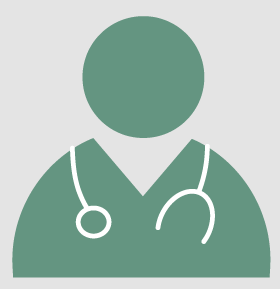
Select City
USFDA-Approved Procedure

Support in Insurance Claim

No-Cost EMI

1-day Hospitalization

PCOD or Polycystic Ovarian Disorder, as the name suggests, is a disorder of the ovaries characterised by three things-
It is a metabolic disorder most commonly found in women of reproductive ages, that is, from the onset of puberty to the offset of menopause.
Typically, a woman’s ovaries are the storehouse of all the female hormones, as well as the reservoir of all her eggs. In a normal menstrual cycle, the ovaries release around 6-12 small cyst-like structures, called follicles. Though each of these has an egg, only one of them gets matured, luteinizes, and funnels towards the uterus to help conception while the others dissolve naturally over some period of time.
However, the problem begins when the woman’s hormones get imbalanced. Here, the pituitary gland (the gland responsible for the release of hormones)starts releasing more male hormones (androgens) instead of female hormones(oestrogen). This causes an excess of luteinising hormones which disturb regular ovulation. As a result, multiple eggs start maturing in the follicles while none break opens to release. This forms multiple tiny cysts on the ovarian surface leading to a list of problems including – irregular cycles, constant fatigue, terrible mood swings, weight gain, nausea, and very often- difficulty in the natural conception.
PCOS (Polycystic Ovarian Syndrome) is the severed version of Polycystic Ovarian Disorder, and hence, precisely the reason why it is called a -Syndrome. PCOS in the simplest sense is the metabolic syndrome or an endocrine disorder that happens when the PCOD has spread to the whole body. Here, the cysts are multiple and hormones severely imbalanced. In PCOS, a woman’s ovaries produce way more male (androgen) hormones than a female’s (estrogen). This severely hampers ovulation and affects fertility adversely. It also causes extreme and frequent mood swings, anger and male pattern hair growth and baldness. However, unlike PCOD, PCOS is rare and irreversible.
| PCOS-PCOD Causes | PCOS-PCOD Symptoms |
| Genetic factors | Irregular periods |
| Excessive male hormones (androgens) | Oily skin and excessive acne |
| Unhealthy dietary practices | Sudden weight gain |
| Less and irregular sleep cycle | Excessive body hair growth |
| Excessive body weight/ obesity | Baldness around the central hairline |
| Abdominal infection/ inflammation | Growth of facial hair |
| Excess of insulin | Constant fatigue and tiredness |
| Urban predisposition | Frequent and extreme mood swings |
Some of the tests your doctor may prescribe you are:
Self-diagnosis would include closely monitoring your symptoms and being conscious of the body patterns.
Count the gap between your two cycles and note if it lengthens more than 30-35 days. See if the flow of your periods has become scanty/ heavier over the months. Also, note if you see any abnormal weight changes/ growth of excessive acne/ facial hair. All these symptoms could indicate an ovarian disorder.
Your doctor can diagnose PCOD/PCOS in you through your explained symptoms clubbed together, with a few positives on clinical, hormonal or imaging tests.
Laparoscopic ovarian drilling surgery is recommended in only extremely rare cases. And when performed, is performed by only a trained and specialized OBGYN surgeon to reduce the risk of complications.
Some of the rare complications of laparoscopic ovarian drilling include:
Non-surgical options largely include:
Surgically, we have the option for ‘laparoscopic ovarian drilling’. Here, your doctor uses a laser to puncture the places where your ovary is producing male hormones. However, because of its probable risk of permanent damage to the ovaries, it is suggested only to women who have tried everything else but none worked.
It is a small operation performed under general anaesthesia. As the body slowly goes numb and you lose consciousness, your surgeon makes a tiny incision (keyhole sized) around your ovaries to insert a laparoscope. A laparoscope is basically a tiny hollow tube with a camera and light on its end. With this lens to understand the exact areas where the ovary is producing androgens, your surgeon uses electrocautery or a laser to puncture and destroy those specific parts and restore ovulation. Once the problem areas are lasered, the site is stitched back with dissolvable sutures and the surgery is completed.
Healing and recovery time for laser ovarian drilling is very swift. In most cases, you can leave the hospital the same day and resume regular work within 5-7 days.
However, some post-care tips that can help you are:
Some other facts include-
If you are looking for a comprehensive solution to your PCOD/PCOS, Pristyn Care is a perfect choice. A few of the reasons that make us one of the best in health care are:


Women with PCOD can still ovulate and can conceive successfully.
No, PCOs and PCOD are not the same. PCOD is Polycystic hormonal disease which occurs due to hormonal imbalance in which ovaries contain immature eggs. Symptoms of PCOD are:
Sadly, this is true. PCOS gives rise to abnormal hair growth, also known as hirsutism, which can lead to hair growth on some parts such as the upper lip, chin, face, and chest.
A woman with PCOS must avoid these foods: